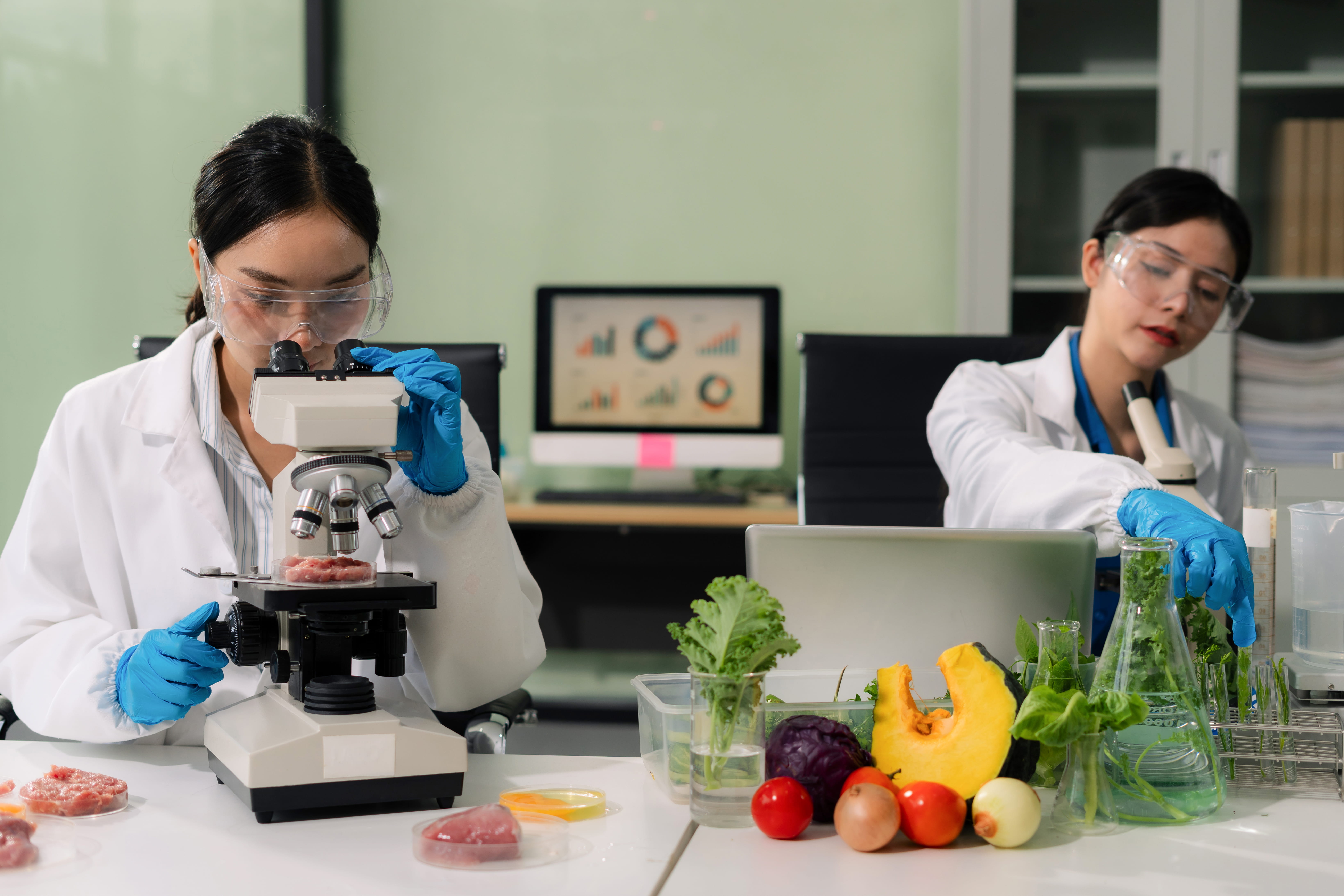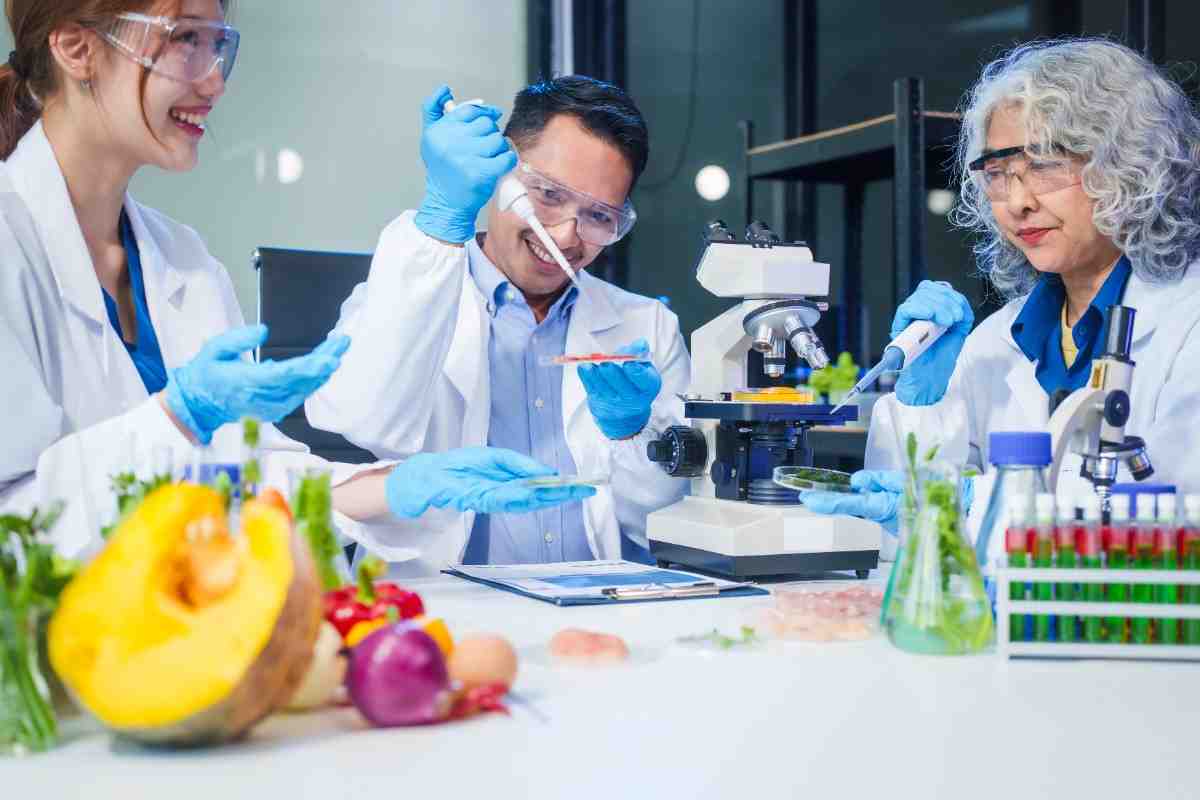Last Updated on December 17, 2025 by Admin
Innovation and modernization are fast-changing the techniques used in the food industry. The needs of modern-day consumers are more focused towards nutrition, sustainability, and convenience, which has changed the way food is produced, distributed, and consumed. The sector is poised to benefit from food innovations, such as lab-grown meats or AI-personalized nutrition, that ensure sustainability and efficiency in the future.
Innovations In the Food Industry
The food sector today seems to be more advanced than before with the emergence of new technologies that enhance the production, processing, and consumption of food. To keep pace with the growing consumer need for sustainability, companies are implementing ultra-modern technologies that focus on innovation, efficiency, and environmental impact.
- One of the significant innovations that has occurred is the alternative proteins which include plant and lab-produced meat. Companies are already developing plant-based proteins while cultured meat is being grown with cellular agriculture to minimize the harm done to the world by livestock farming.
- Another breakthrough is the 3D food printing technology which features meal customization regarding nutrient requirements. This technology is targeted to serve a customized nutrition approach.
- AI (artificial intelligence) and blockchain are also playing their part in redefining food production. AI-powered analytics work alongside blockchain systems to trace food, verify food safety, eliminate corruption and contamination in supply chains, and optimize agricultural yield while minimizing waste.
- One of the newest breakthroughs is precision fermentation, which allows companies to create dairy and protein-rich alternatives without relying on the traditional farming of animals ([5 food industry innovations in 2024.
- Also, the new autonomous micro-factories are improving local food security and decentralizing food production, which lowers the expense of logistics.
The improvements make it clear that the future of food is not only customized to the individual but also sustainable and more efficient. In addition, innovation in the food industry is compelled not just by convenience alone, but also by the global issues at hand like climate change and food security.
Developments in Technology for the Food Sector
1. Incorporation of AI in food technology
From farms to specialised meal planning, artificial intelligence has changed every aspect of the food industry. AI-based systems are automating the optimisation of irrigation, predicting harvests, and minimising food waste in commercial kitchens. Companies are using AI to enhance automation in the production and delivery of food items.
2. Personalised nutrient-rich meal products
The coupled use of 3D printing and biotechnology is now enabling the personalised fabrication of foods, including custom nutrient-rich meals. This innovation is already being used in the industry for artificially produced vitamin gummies, elaborate cake decorations, and even plant-based meat products.
3. Fermentation Screen Technology for Protein Sources Based On Plants
Fermentation screen technology allows the production of dairy and meat substitutes that have the mouthfeel and lingering taste of animal products. This technology aids in the production of more environmentally friendly protein sources without the use of animal husbandry.
4. Technologies saving from food waste
To minimise food waste, companies are targeting surplus ingredients. Various apps enable unsold food from restaurants to be sold to consumers, while companies are using spent grains of brewing to create snack foods, thus marketing food waste.
5. Decentralised food production technology
These autonomous micro-factories are developed to decentralise food production and therefore reduce transportation costs as well as carbon footprints. These factories use robotics and AI for the production of high-quality food at low prices locally.
6. Food and Agriculture
The cultivation of lab-grown food is no longer restricted to the extension of meat products but now includes coffee, vanilla, and other staple products. This invention helps decrease the use of land, which is now being used for deforestation, while also minimising the consumption of other resources.
7. The Blockchain in Food Safety
The traceability and antifraud capabilities of food are both enhanced through blockchain technology. IBM and Walmart are two of the big companies that have already implemented blockchain systems to safeguard the food supply chains by tracking these systems.
Also read: Understanding the Dynamics of Food Technology
Final Thoughts
The fast-paced foreclosure of the food novel industries is due to a mixture of consumer preferences, changing technologies, and the pitch for sustainability. With increasing populations and dwindling resources, feeding innovation is not a luxury but a requirement. Several paradigmatic shifts in food science are making it more user-friendly, customized, and thus, reasonable in its scope. Biotechnology, automation, and intelligent systems are improving food safety, quality, sustainability, and ethics in the production of food to ensure future generations have proper nutrition.
Increased awareness of consumption and its impact on health along with changed food habits are radically shifting the industry toward cleaner organic, unprocessed food. Best efforts are being actively sought to minimize waste, maximize shelf life, and offer food substitutes to serve different lifestyles and sensitive dietary requirements. The industry of the food will hinge at the cross roads of custom and novelty, while technology will complement biological functioning and not replace it. There will need to be trade and collaboration between farmers and scientists, politicians, and the public to realize a sustainable, equitable and resilient food future.
The Food Industry Capacity & Skill Initiative (FICSI) offers online food safety courses designed to enhance knowledge about food hygiene, quality control, and compliance with regulatory standards. These courses cover key areas such as food safety management systems, HACCP (Hazard Analysis and Critical Control Points), and FSSAI guidelines, ensuring that professionals in the food industry maintain high standards of food safety and quality.
FICSI collaborates with various industry experts and regulatory bodies to provide comprehensive training programs, suitable for food business operators, quality managers, and hospitality professionals. The courses are available in flexible online formats, allowing participants to learn at their own pace while gaining certifications that enhance career opportunities in the food industry.













